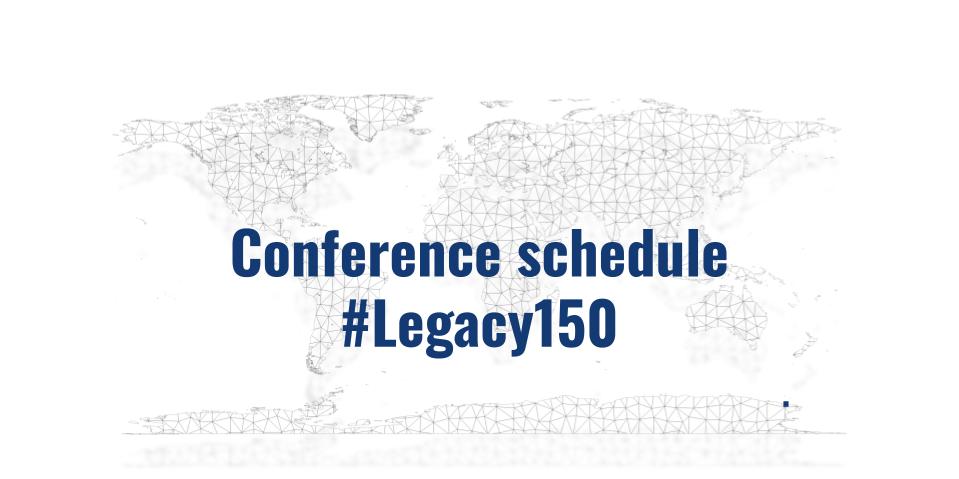
On the 18th of April 1874 David Livingstone was given what amounted to a state funeral in Westminster Abbey in London. Livingstone had come to embody, at his death, all that was central to British ideas of colonialism. He warranted such public acknowledgement that his funeral cortege was followed by the empty carriage of Queen Victoria, with Prime Minister Disreali and the Prince of Wales, Albert, in attendance in the Abbey. He died at the end of April 1873 in present day Chipundu, Zambia. The subsequent transcontinental journey led by Jacob Wainwright and James Chuma to take his body to the coast to be returned to Britain became the stuff of legend and it captured the British imagination, cementing ideas of Livingstone as a martyr and Victorian hero. Importantly, this journey reinforced notions of Britain seeing itself as a global leader with a soft-power that could make people of other nations walk 1500 miles in 10 months to return a body to its home country. This “soft-power empire liberalism” not only manifested in how Britain saw itself but in how its museums were and are presented as being custodians of the histories and cultures of the world. This conference uses the stories of Wainwright, Chuma and the many other people who worked with Livingstone to push against the continuing influence of colonial, hegemonic and hierarchical notions of museums. It looks to investigate what technologies can do to involve more people in histories that have long been exclusionary and binary in their telling. During this conference we will explore the uses of historical research, oral testimony, creative practice, digital technologies and other advanced technologies to not only evidence contemporary issues in cultural heritage but also suggest ways to respond to them.
| Day | Time | Event | Papers |
| Thursday 18th April 2024. National Library of Scotland | 12:00-13:00 | Lunch | |
| 13:00-13:15 | Opening remarks | Kate Simpson | |
| 13:15-14:35 | Presentation 1 | ‘Unlocking the Economic Potential of the Slave Trade and Dr David Livingstone heritage in Malawi’ – Matthews Mfune, Executive Director of Sungani Zakwathu Cultural Heritage Association. | |
| 14:35-15:15 | Coffee & Tea | ||
| 15:15-17:15 | Panel 1 | ‘The London Missionary Society in TransOrangia 1799 – 1870, with a focus on Griquatown, Campbell and Kuruman’ – Colin Fortune,this paper will be read by a third party / ‘David Livingstone: Legacy and influence on Zambia’ – Chiku Ikakena, Assistant Keeper of History at the Livingstone Museum, Livingstone, Zambia / ‘Situated Knowledge in Object histories: Provenancing the Botswana Objects at the David Livingstone Birthplace Museum’ – Dr Winani Thebele, Chief Curator and Head Of Department Ethnology Division, Botswana National Museum. | |
| Friday 19th April 2024. David Livingstone Centre, Blantyre. | 09:25-09:30 | Opening remarks . | |
| 9:30-11:00 | Panel 2 | ‘Worlding Museums’ Data’ – Maribel Hidalgo-Urbaneja, Chelsea College of Arts / ‘Collaborative Approach to Updating Object Records at the David Livingstone Birthplace Museum’ – Alasdair Campbell, HES & Rachael Smith, Paisley Museum / ‘Regimental and Corps Museums: Re-thinking an Untapped Source of Ethnographic Collections’ – Freya Samuel & Chris Berriman, Decolonial Focus. | |
| 11:00-11:40 | Coffee & Tea | ||
| 11:40-13:00 | Roundtable – ‘What are the key issues affecting community engagement in Cultural Heritage in 2024?’ | Scotland Malawi Partnership / West of Scotland Regional Equality Council | |
| 13:00-14:00 | Lunch | ||
| 14:00-15:30 | Panel 3 | ‘Put down the master’s tools’: Anti-Racism, Decolonization, and embedding institutional change’ – Joshua Robertson, Museum Association/ ‘Intangible knowledge loss due to project-based collections management’ – Jeanette Croen & Taptika Bhandari, David Livingstone Centre / Thistles and Dandelions Heritage Project – Asma Abdalla, CEO of Empower Women for Change & Fizza Kaneez, Project Coordinator at Empower Women for Change. | |
| 15:30-16:00 | Coffee & Tea | ||
| 16:00-17:20 | Panel 4 | ‘Jacob Wainwright and the work of Belong’ – Simon Ferrigno / ‘Sikh Heritage in Colonial Collections’ – Jamie Robinson, University of Manchester & Gurtek Singh, Council of Five Manchester Gurdwaras / ‘“Woman in a headscarf”: new approaches to the archive of the British Institute for Libyan and Northern African Studies’ – Felicity Crowe, British Institute for Libyan and Northern African Studies. | |
| 17:20-19:00 | Reception | ||
| Saturday 20th April 2024. David Livingstone Centre, Blantyre | 09:30-11:00 | Panel 5 | ‘Digital Editing, Material Culture and the Production of Geographical Knowledge’ Justin Livingstone, Queen’s University Belfast / ‘Livingstone’s Lantern in a New Light: Perspectives in Photogrammetry’ – Mary Borgo Ton & Dirk Ton, University of Illinois Urbana-Champaign / ‘Ethical Community Engagement in the Digitization of Cultural Heritage: Strategies, Challenges, and Procedural Guidelines’ – Ahlam Bavi, Vancouver Island University. |
| 11:00-11:40 | Coffee & Tea | ||
| 11:40-12:30 | Panel 6 | ‘The museum catalogue will not be decolonised (and definitely not by computers)’ – Erin Canning, University of Oxford / ‘Doing More by Doing Less: Accurately Preserving History with Digital Technologies ‘ – Mike Toth, President R. B. Toth Associates / ‘Building Sustainable Digital Futures: converting Livingstone and Bell’ – James Cummings, Newcastle University. | |
| 12:30-13:30 | Lunch | ||
| 13:30-14:30 | Roundtable – Discussion around technology, harm and bias in history and heritage research. | Ray Abruzzi, Program Director at Wiley Digital Archives / Adrian Wisnicki, Director of One More Voice / Kate Simpson, Digital Humanities Institute at the University of Sheffield / Natasha Dube, Belong Nottingham. |